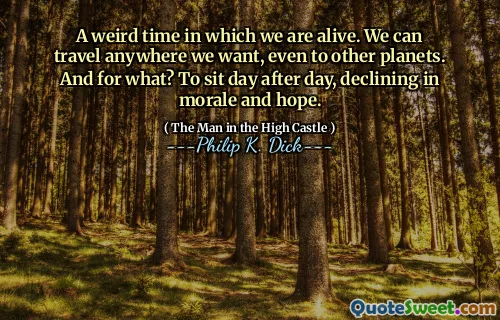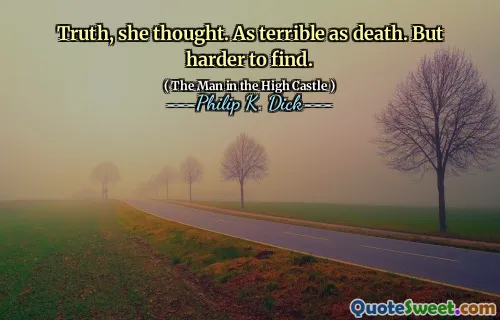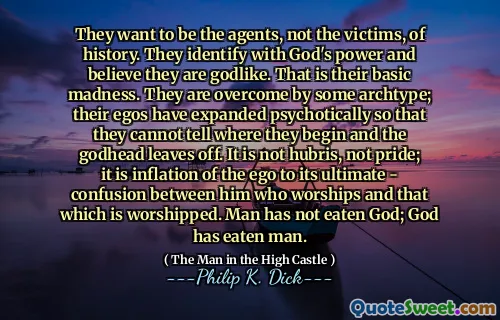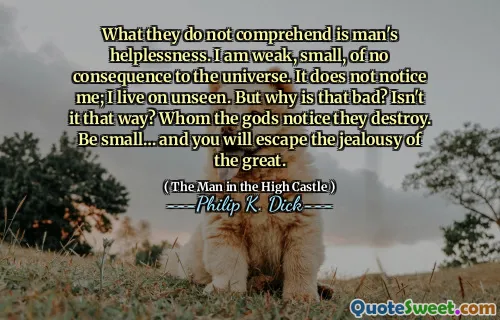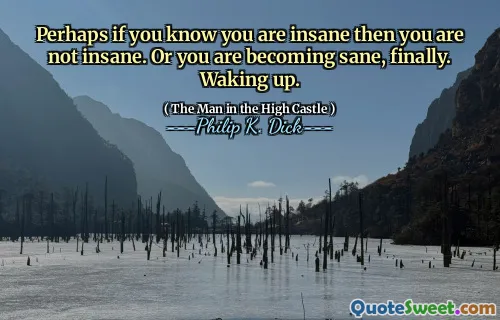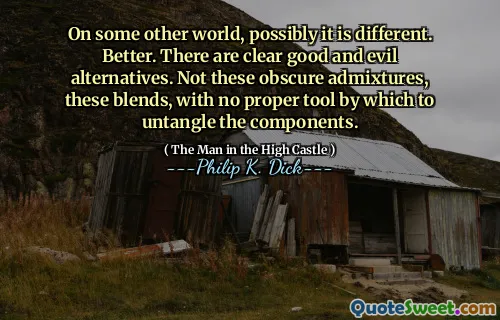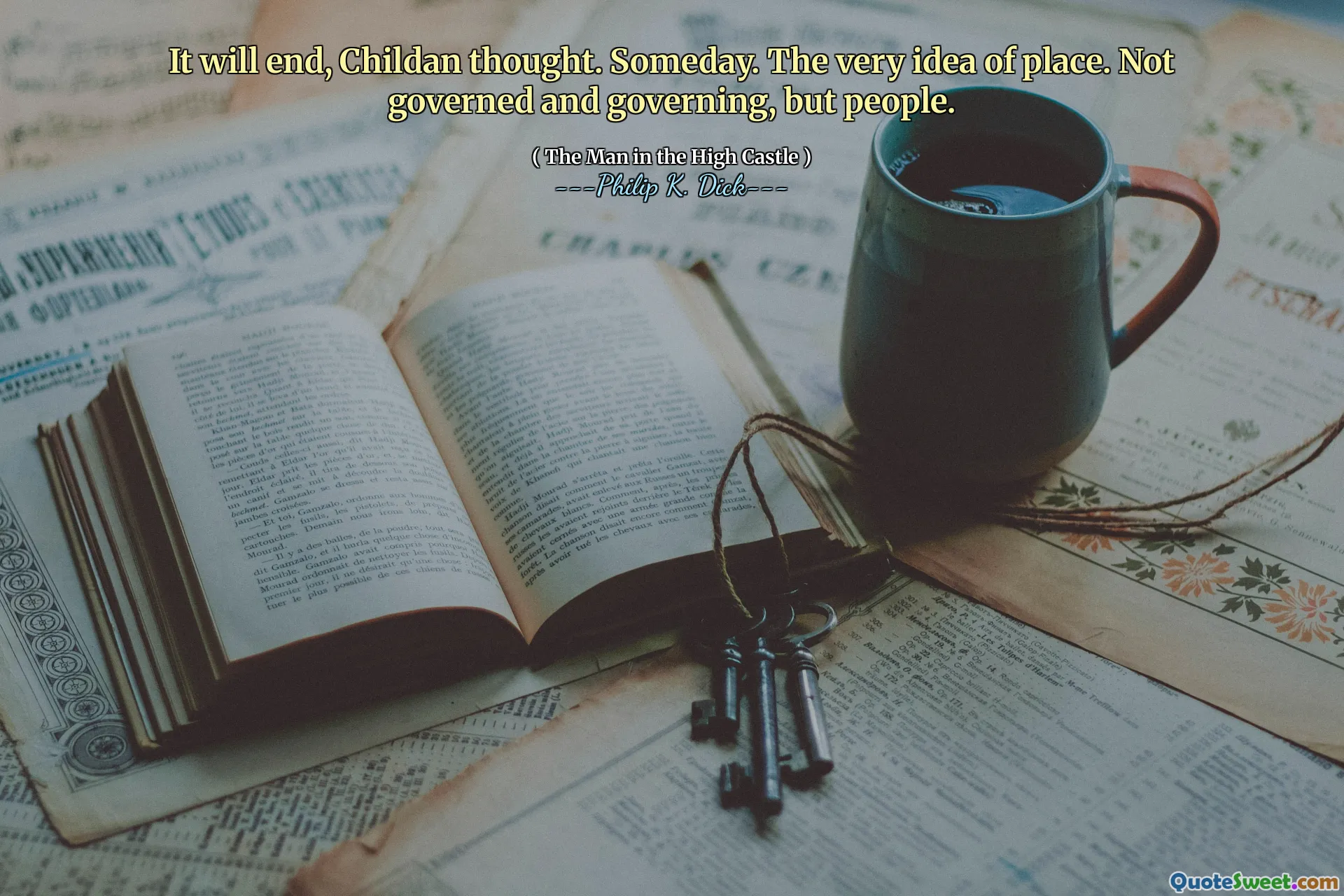
It will end, Childan thought. Someday. The very idea of place. Not governed and governing, but people.
In Philip K. Dick's "The Man in the High Castle," the character Childan reflects on the concept of place and governance, contemplating a future where traditional power structures fade away. He envisions a world defined by human connections rather than political authority, highlighting a longing for a more community-oriented existence.
This thought reveals Childan's desire for change and suggests an underlying hope for a society that prioritizes the well-being of individuals over institutional control. The narrative raises profound questions about identity, power, and the essence of a harmonious society in a complex and often oppressive world.
